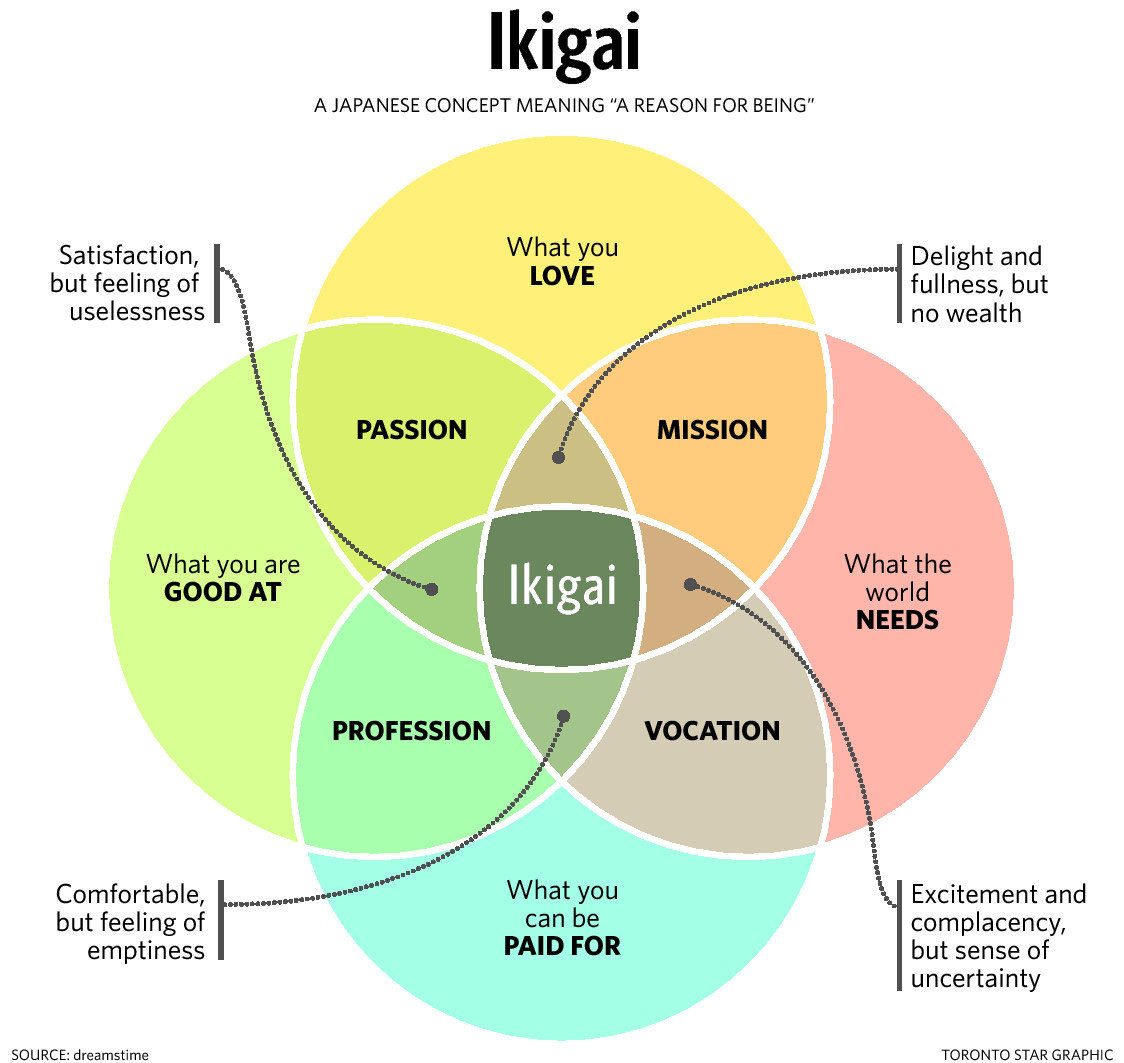What’s the main reason for getting up in the morning? Looking for an answer for such a big question could send you straight back to your warm bed bed. If this is true, an old Japanese concept of ikigai could help.
Invented in the country with one of the world’s oldest populations, this concept is becoming popular outside of Japan as a way to live longer and better.
With no direct English translation, ikigai seems to combine the Japanese words ikiru, “to live”, and kai, meaning “the realization of what one hopes for”. These two definitions create the concept of “a reason to live” and the idea of having a purpose in life.

To find this reason or purpose, experts recommend starting with four questions:
What do you love?
What are you good at?
What does the world need from you?
What can you get paid for?
I you find the answers and an equilibrium between these four areas, it could be a route to ikigai for Westerners looking for a quick interpretation of this philosophy. In Japan, ikigai is a slow process and it has nothing to do with your job or wage.
In a 2010 survey of 2,000 Japanese men and women, just 31% of participants cited work as their ikigai.
Gordon Matthews, professor of anthropology at the Chinese University of Hong Kong and author of What Makes Life Worth Living?: How Japanese and Americans Make Sense of Their Worlds, told the Telegraph that how people understand ikigai can, in fact, often be mapped to two other Japanese ideas – ittaikan and jiko jitsugen. Itaikkan refers to “a sense of oneness with, or commitment to, a group or role”, while jiko jitsugen relates more to self-realization.
Ikigai can be achieved by following a goal, an objective, a dream, but it can also be found in something simple as an intention to express or interact with others. For example, some of us find their meaning and purpose in cooking and caring for their families. Others discover their vocation in gentle acts toward people or any other being.
What is at the core of an Ikigai is precisely this joyful sharing of your gifts, a gift that can be shared with more people, as many as possible.
Researchers point that ikigai can change with age. For anyone whose work is their reason for living, this will come as a relief as they approach retirement and begin the search for a new ikigai.

Comments are closed.